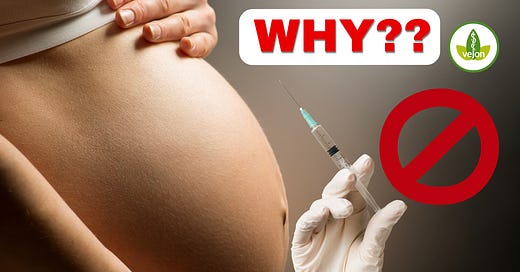The public health response to COVID-19 has been a rollercoaster of shifting narratives and evolving recommendations. Nowhere is this more evident than in the guidance surrounding COVID-19 vaccination during pregnancy. Just last year, the message was clear: vaccines were strongly recommended for pregnant and breastfeeding women as the safest and most effective way to protect both mother and baby. But now, the Joint Committee on Vaccination and Immunisation (JCVI) in the UK has declared that COVID-19 vaccination in pregnancy is no longer recommended as a standard practice.
This dramatic shift leaves us with many questions: What has changed? Were these vaccines necessary for all pregnant women to begin with? And most importantly, what does this mean for trust in public health messaging?

The Initial Push for Vaccination
In January 2023, public health bodies such as the UK Health Security Agency promoted COVID-19 vaccines for pregnant women, citing their role in reducing hospitalization and severe disease. The messaging was unequivocal: vaccination was the best choice for maternal and neonatal health. Pregnant women embraced this advice, trusting that the guidance was rooted in rigorous science.
But as I delved deeper into the science of COVID-19 and its variants, I realized that public health decisions often lacked the nuance needed for complex situations like pregnancy. While the guidance appeared robust, it was not clear whether blanket recommendations accounted for individual risk factors such as age, obesity, or preexisting conditions.
Sign up for Preorder and preview here >
What Changed?
Fast-forward to late 2024, and the JCVI has taken a different stance. They now advise that COVID-19 vaccination in pregnancy is "highly unlikely" to be cost-effective due to reduced risks in the Omicron era. The data now shows that hospitalizations and severe outcomes among pregnant women peaked during the Delta wave but have significantly decreased with Omicron.













